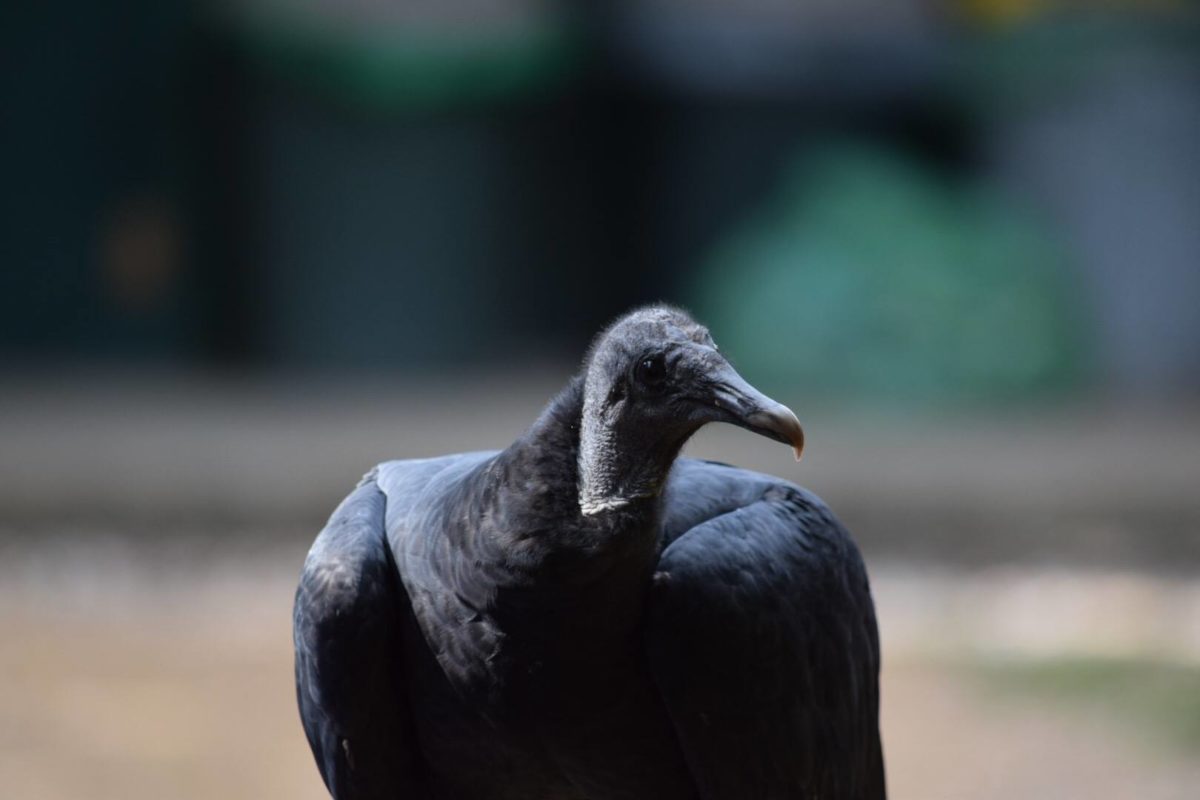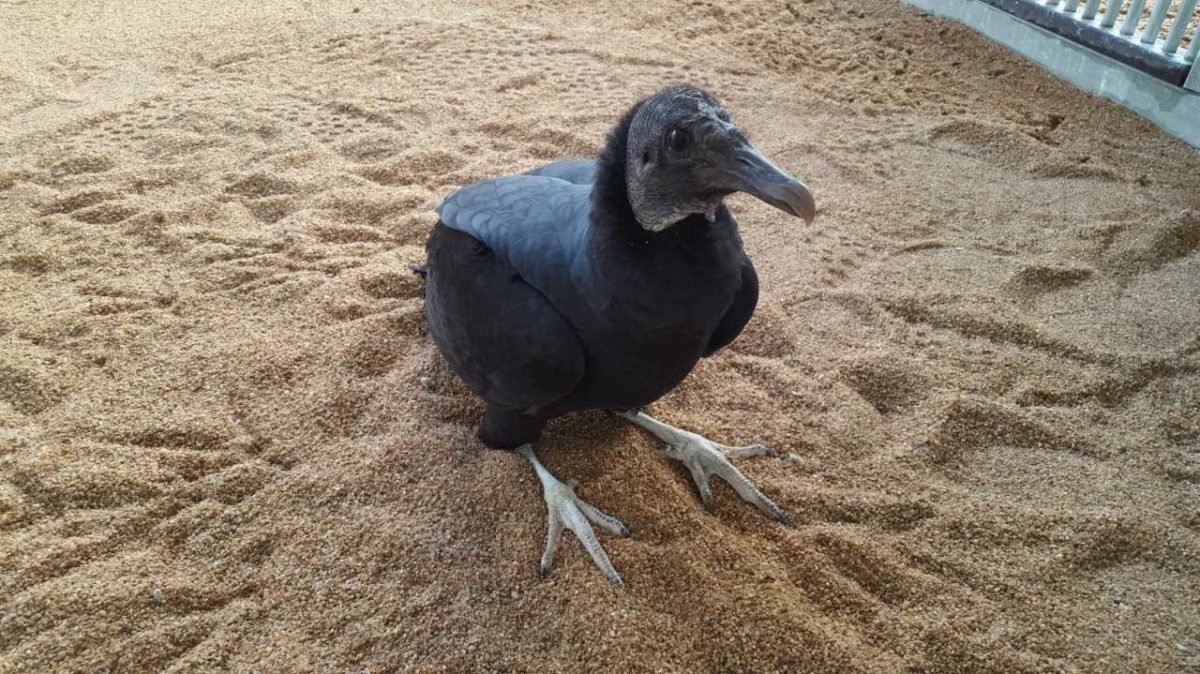Dudley the Black Vulture


- As you wander through the Zoo for this season of TXU Energy Presents Zoo Lights, you may find yourself being watched by one of our newest Zoo Lights admirers: Dudley the black vulture! Dudley has been in the Children’s Zoo for over four years, but he has only been on display for the past year. This season is Dudley’s very first time seeing all of the holiday lights. Because birds can sometimes be a bit flighty, zookeepers put up a huge visual barrier to block the lights so that Dudley wouldn’t be disturbed by them. To their surprise, keepers noticed that Dudley was spending most of his time peeking around the barrier watching the people coming and going and seemed to be enjoying the spectacle of the lights. Now the keepers have removed the barriers so that Dudley can enjoy watching the guests and Zoo Lights whenever he would like to.
Since Dudley can see the lights, but isn’t on the official Zoo Lights path, be sure to come and visit him during the daytime. Dudley was orphaned as a chick and rehabilitated at a wildlife rehab facility. Unfortunately, Dudley strongly imprinted on humans and was unable to transition to a life in the wild. Imagine how you would react if a wild vulture came running up to you begging for food! That’s where the Houston Zoo stepped in to give him a permanent home. Here, Dudley’s inquisitive nature helps him work with his keepers for training sessions, and being able to see all of the guests through his window allows him to interact with humans in a safe environment.
When you see Dudley’s wild counterparts along the Texas roadsides, don’t forget to appreciate all of the wonderful things they do for the environment. Although an animal that eats carrion and rotting meat doesn’t sound very appealing, vultures are very important as nature’s ‘clean up crew.’ Their extremely strong stomach acid is akin to battery acid and they can eat anthrax infected meat without becoming ill. In fact, their strong digestive system allows them to kill bacteria and even some viruses, which prevents diseases from spreading to other animals. You can help wild vultures by recycling paper products to protect their habitats and spreading awareness about their importance to help reduce people’s reservations about them.
